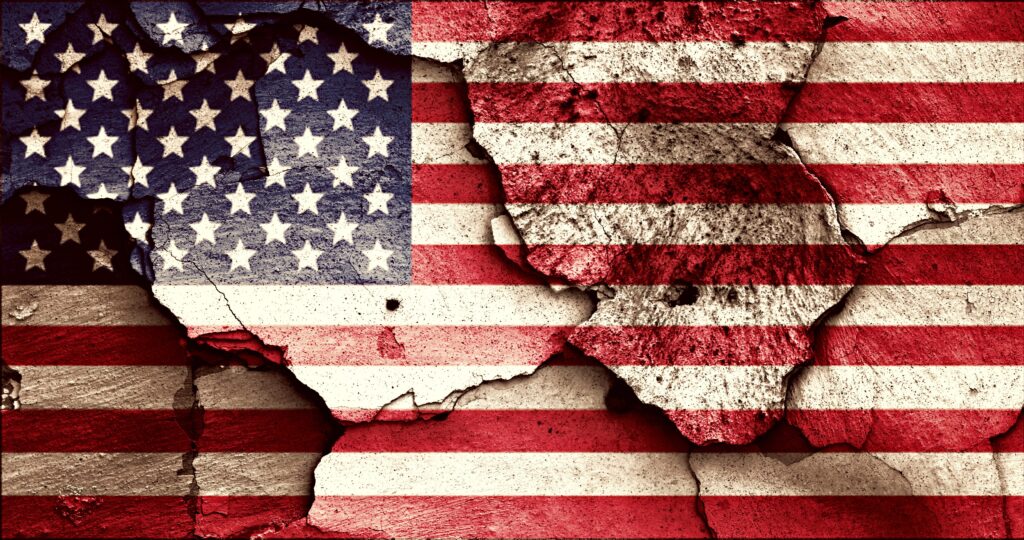A Warning from an Arab American to his Divided Country

By: Ghassan Rubeiz / Arab America Contributing Writer
As a young man, I never imagined leaving my homeland behind: for me, Lebanon was the place to be. True, there was considerable corruption; we took explicit sectarian power sharing for granted. However, there were abundant freedoms, including worship, politics, business, education, and cultural expression. I had, perhaps mistakenly, believed that Lebanese society would find its way back to normalcy.
My American-born wife and I had both graduated from the American University of Beirut in the 1960s. In 1972, three years before the outbreak of the Lebanese civil war, I completed my doctoral work at Washington University in St. Louis. We returned to Beirut immediately afterwards, and I resumed teaching. It didn’t take me long to notice that Lebanese society had become dangerously divided: primarily on political issues, though these were manifesting on the surface as religious conflict. The campus became agitated.
As a professor of social science, I felt compelled to take on a pastoral role, encouraging my students to freely embrace their multiple identities and take pride in who they are, regardless of their religious or ethnic background. I challenged my students to be both Lebanese and Arab simultaneously: could they be Christian or Muslim, without feeling threatened by their neighbors’ faith? I challenged them to appreciate their ideological differences and avoid the trap of factionalism.
But a teacher can only do so much. While I, along with many other educators, tried to build understanding, the warlords and mass media proved to be more effective communicators, more skilled at building barriers between family members, neighbors, and communities. Lebanon’s civil war drove us out of the country in 1975, like so many others. We settled initially in Tennessee, then moved to Europe, where I took a job in international service. In 1996, I returned to the United States with my family.
Meanwhile, we watched in agony as Lebanon nearly destroyed itself over fifteen years ruined by political and religious leaders who fell short of their responsibilities and sought personal gain and power. Despite my long separation from Lebanon, I never dismissed the possibility of returning. It helped that my American wife was always willing to return if and when my people got their act together. But Lebanon has not embraced serious reform. I am now 85 years old, still carrying bittersweet memories of Lebanon, the former “Switzerland of the Middle East”.
As I reflect on America’s current political scene, I have to wonder whether I left Lebanon only to settle in a country that, in some subtle ways, resembles pre-civil war Lebanon. I am deeply troubled by America’s hyperactive partisan mood and the politicized media that feeds prejudice to their loyal constituencies. Too many Americans are convinced that their political party has all the correct answers to our social problems. Too many are comfortable labeling political opponents as ignorant and dangerous, bordering on enemies.
As an Arab American, I have begun to question whether I can freely and fully share my political opinions, especially about US foreign policy in the Middle East. How far can I go in expressing my views on the Arab-Israeli conflict? I no longer feel free to criticize Israel without being charged with antisemitism. How can I ignore Washington’s complicity in good conscience? I watch with alarm as Congress floods the legislative calendar with bills aimed at making life uncomfortable for Arab and other foreign students who protest on behalf of Palestine. I am astounded that our President actively discourages foreign students with “suspect ideas” from applying to study in the United States. How different are they from me and many others of my generation who arrived with hope and excitement to study in America and to join what we saw then as a global village?
I no longer feel confident about the future. I worry about what kind of America our grandchildren will live in. Will the next generation still recognize the founders’ ideals: freedom and equality for all, and the separation of powers, enshrined in the Constitution? I am left hoping that America, unlike Lebanon, may be too big to fail and will somehow be able to right itself.
Ghassan Rubeiz is the former Middle East Secretary of the World Council of Churches. Earlier, he taught psychology and social work in his country of birth, Lebanon, and later in the United States, where he currently lives. He has contributed to political commentary for the past twenty years and delivered occasional public talks on peace, justice, and interfaith subjects. You can reach him at rubeizg@gmail.com
The views and opinions expressed in this article are those of the author and do not necessarily reflect the position of Arab America. The reproduction of this article is permissible with proper credit to Arab America and the author.
Want more articles like this? Sign up for our e-newsletter!
Check our blog here!








